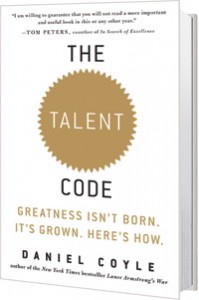
Why It’s Okay For Youth Sports Parents To Believe Their Child Will Play Sports in College
Why it’s okay for youth sports parents to believe their child will play sports in college. Okay, hold on. I know this sounds bad. Right now, kids are being pressured by unrealistic expectations from their parents around school and sports, and it’s taking a massive toll on their mental health. This needs to change. It’s one of the biggest issues in youth sports today. Sports parents want an ROI and forget the real reasons kids should play sports: for the journey and the lessons earned and learned along the way.
But this isn’t about pressuring your kids or forcing perfection and your agenda; it is about allowing them the space to dream.
My Daughter Quit, and This Is What Youth Sports Parents Need To Know
As sports parents, we are trained (despite what might be in our hearts and minds) to follow the golden rule, and it’s absolute. Never. Ever. Under any circumstances, mention to your young child, and definitely not to another parent, that your kid could potentially play college sports. Any thoughts remotely resembling earning an athletic scholarship or the hint of a belief that your athlete could play in college must be locked up and hidden away from all like a deep, dark family secret! Otherwise, you might:
A: Set your kid up for a HUGE disappointment later in life because we have all heard the statistics about how many kids actually make it to the collegiate level (and we certainly don’t want our kids ever to feel disappointment *see post on too many trophies*Read Here)
B: You will definitely be labeled a crazy sports parent by your peers. Even though secretly, many parents and kids probably share the same dream.
Well, it might be time to rethink this.

As assumed, some went on to become very talented musicians, and some did not. McPherson could never have predicted what came next. Turns out the key to success wasn’t practice time, math skills, or music aptitude, as most would assume. Nope. It was the answer to one simple question he had asked before they started their first lesson at 7 years old: How long do you plan to play your instrument? The answers were separated into short-term, medium-term, and long-term. They were then graphed and charted along with skill level and practice time. The results were astonishing.
The students who at age seven felt they would be playing their instruments for the long term, by age 17/18, had outperformed the short-term group by 400% when the practice time was even. And for the group who only practiced twenty minutes per week (the least amount), but chose long-term on the question, STILL way outperformed the group who practiced an average of 120 minutes weekly but who chose short-term goals when they first started playing.
The Science Behind How To Practice Better
Taken at its most basic meaning. If you think you can, you can. If you think you can’t, you probably won’t. “These kids weren’t born musicians..their wanting came from a distinct signal, from something in their family, their homes, their teachers, that they had encountered in their short lives”. Those kids who had received this positive message had a tremendous advantage. It was the single most determining factor of success.
Doing This One Thing Can Greatly Improve Your Child’s Performance
Even if there is only a 9.1% chance our kids will play sports in college, it’s better than the odds of becoming President at 1 in 10,000,000, and you certainly wouldn’t tell a kid not to dream of becoming President. Besides, what is the point of telling your kids they probably won’t make it to the college level? If they truly aren’t destined for college sports, that will become apparent to them soon enough when they are cut from a club or travel team or their high school team or see their playing time and skills falling behind others. And for those that have a shot – even a long shot, let them believe in themselves and see what they can do. If it doesn’t happen, I’m guessing they will have learned a lot of life lessons along the way, including that not everyone gets a trophy (or scholarship) when it’s all said and done.
More Articles You Might Be Interested In:
What It Really Takes To Raise Successful Athletes
Why It’s Critical Girls Play Sports












